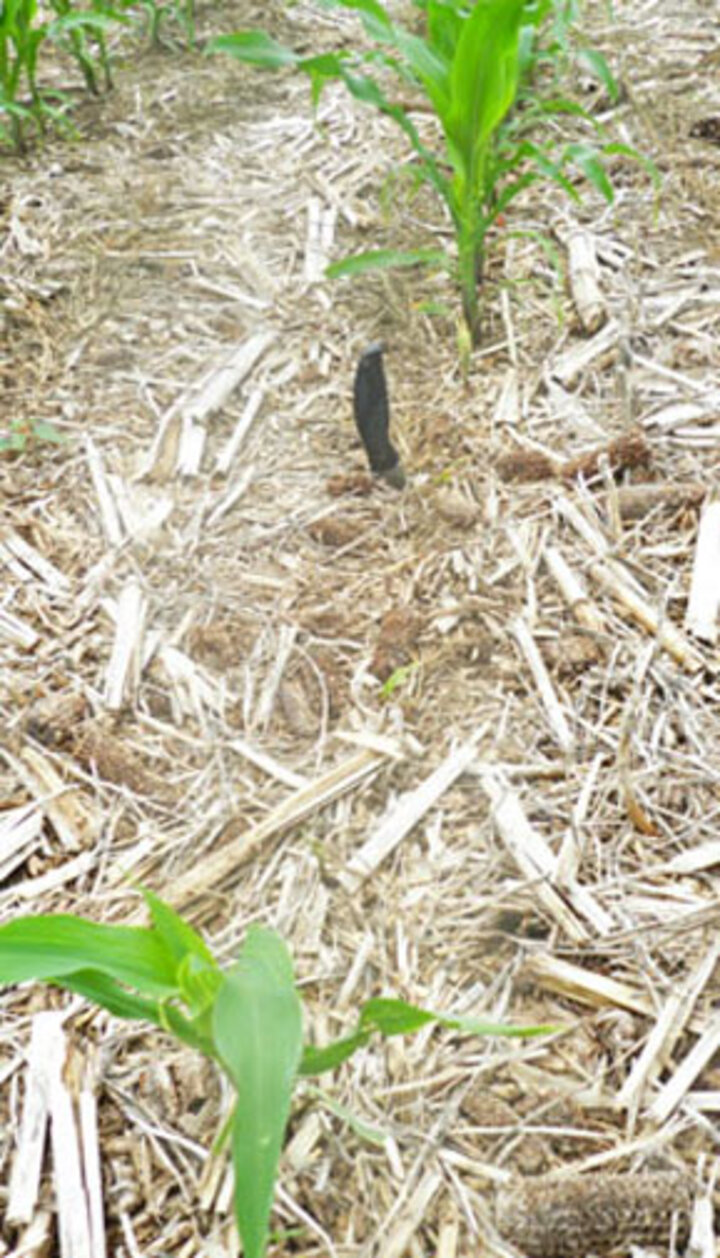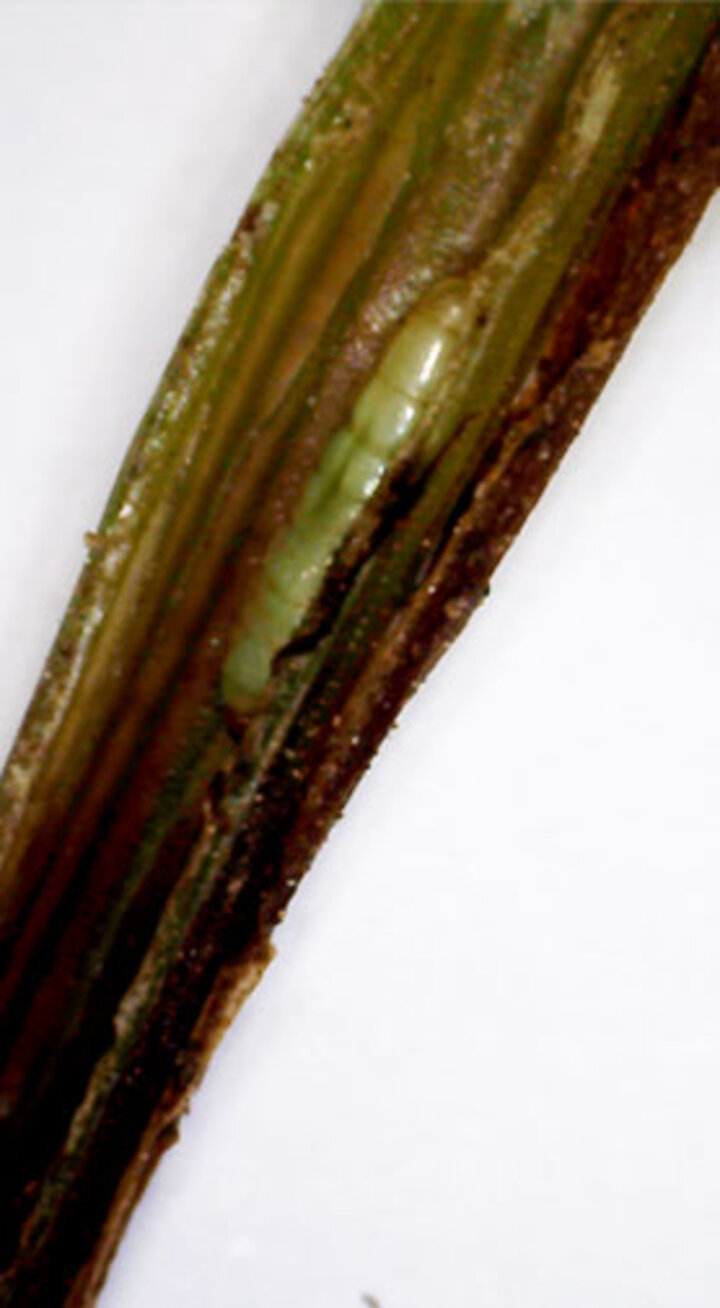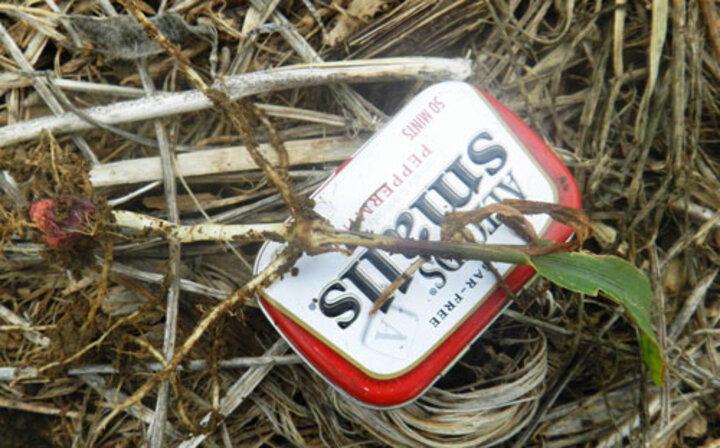

An unusual situation has surfaced in northeast Nebraska. A number of producers are reporting stunted corn plants with brown flagging in their fields. Reported stand reductions range from 5%-10% (Figure 1). Upon investigation the wheat stem maggot (Meromyza americana; WSM) was identified as the culprit (Figure 2).
Wheat stem maggot is a species of Chloropid fly. It overwinters in the stem of its host plants as a larva. Adults emerge in May. Two more generations will be completed in the same year; one will be in summer and the other in the fall. Cultivated hosts include: wheat, barley, rye, timothy, and oats. Other hosts include: quack grass, slender wheat grass, western wheat grass, wild barley, wild rye grass, brome grass, green foxtail, and yellow foxtail.
An incidence of wheat stem maggot was reported in northeast Nebraska in 2005. Current and past fields with damage all had a single factor in common: a cereal grain was planted as a cover crop. Plants affected had maggots that entered the plant around the first node. The activity of the maggots caused the plants to produce a gall (Figure 3). The maggots made feeding tunnels that went up through the growing point and, in the process, destroyed it. Destruction of the growing point led to the characteristic stunting and flagging of plants.
There are no known management options at this point. The pupae and larvae are inside the stem where they are safe from insecticide exposure. Three generations of adults and multiple weedy host plants make the adults difficult to manage. We know that currently infested fields have a range of insecticide treatment levels. Seed was treated with Poncho® at 250, 500, or 1250 rates. Given the range of treatment levels it appears that seed treatments may not be a viable option for management.Environmental factors likely were ideal this spring for wheat stem maggot to infest corn. It is expected that this pest will continue to be a rare, sporadic pest of corn.
Wayne OhnesorgExtension Educator
